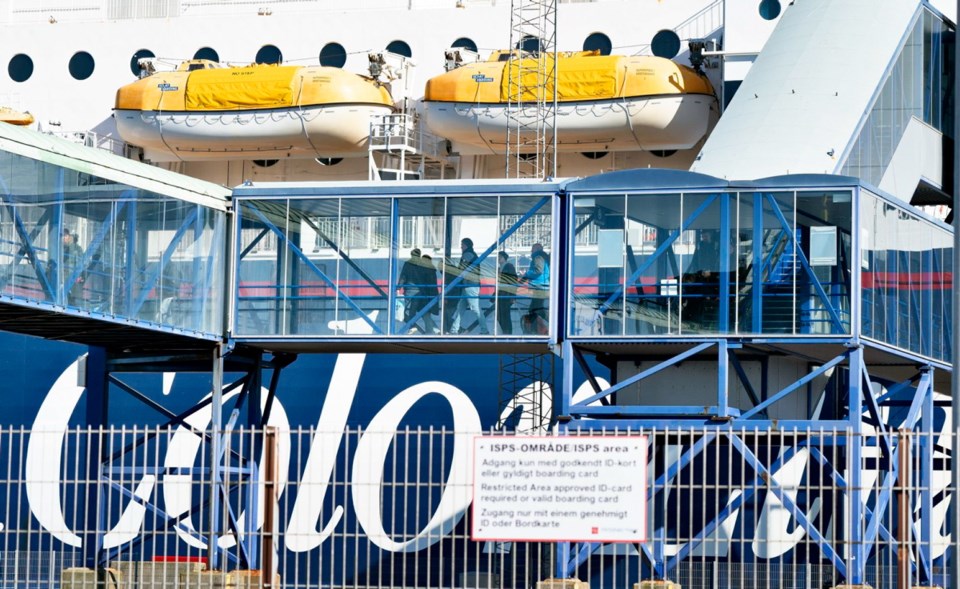Former B.C. reporter Shane Woodford is ahead of the story. Eight hours ahead, in time zones, since he lives in Denmark. And Denmark looks to be a few days ahead of Canada in terms of the impact of the COVID-19 pandemic and the response to it. So his experience might be instructive as to what comes next.
Woodford was well-known in �鶹��ýӳ��and Kamloops media — CBC, CKNW and CNHL — before moving to Denmark in 2019. He lives in Faaborg, a town of 8,000 with his wife and young son.
On Monday he described life in general as “tense and eerie.” Nothing really bad has happened. They’re living in a good place in a strong, resilient country. But the threat of the pandemic and the severe countermeasures have a strong psychological impact.
It was the closure of the national borders to most discretionary travel last week that drove home the enormity, he said.
“That was a moment.”
The same moment landed here Monday, as Canada followed suit, with the exception of the U.S. border.
The national daycare closure sent them scrambling a few days earlier. His wife’s computer had to be relocated from the office when the work-from-home edict took effect.
A routine doctor’s appointment was cancelled. The country’s health system has a “treatment guarantee” on wait times, but it was cancelled last week.
Canada and B.C. seem to be escalating the lockdown more gradually. Denmark took more major steps all at once, closing daycares and all education and sending most of the government home — with pay — last week.
So they’re cooped up at home, caring for their son because the daycare is closed. His wife is still working, but from the kitchen counter.
Panic buying, hoarding, prudent preparation — whatever you want to call it — seems to extend to more than just toilet paper, he said.
The dairy section and the meat counter at their grocery were empty for a time last week, as the initial jolt spurred people. But they’ve since been restocked.
As an experienced government watcher, Woodford notices a different tone in the leadership’s messaging on the crisis.
Canadian leaders to date have issued dire urgent warnings, but have been circumspect about bad it could get. Woodford said the Danes are much more blunt. He sums up numerous briefings from the country’s leadership as: “This is going to be brutal. We’re going to pay dearly … and lose billions.”
Communication teams in Canada would likely tone that message down considerably, he noted.
Danes also seem to be more open to admitting they’re winging it while trying to stay ahead of the health crisis.
Danish Prime Minister Mette Frederiksen told citizens: “Under normal circumstances, a government would not present such far-reaching measures without having all the solutions ready for the many Danes concerned, but we are in an extraordinary situation.”
The country has already committed billions to several relief and stimulus packages.
It’s freed up billions in liquidity for banks and announced two new loan guarantee programs, one for big industries, one for smaller enterprises.
As well, employers will be reimbursed by government from the first day that an employee becomes ill or is quarantined.
Companies can also reduce work hours and have the state supplement the lost income, in order to avoid layoffs.
Something not yet seen in Canada are joint appearances by leaders from all sectors. Woodford said business, union and government leaders have staged news conferences to reassure people.
Canada will likely follow suit on at least some of those kind of measures. No one knows where the affordability limit is on these measures. At this point, no one cares.
Just So You Know: The first significant breach in Canada’s united front appeared Monday, as B.C. clearly disagreed with Prime Minister Justin Trudeau’s decision to leave the U.S. border open.
There are arguments for and against, but it would be much better for the national effort if the province and Ottawa could get on the same page fast, even if border traffic appears to be dwindling on its own.
One suggestion: Just suspend the major crossings in B.C. and B.C. air routes to Seattle.
Washington state is a major epicentre of the virus outbreak in the U.S. Suspending discretionary traffic there would ease a lot of minds.



